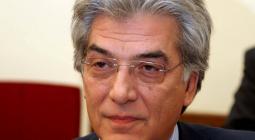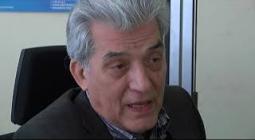REN21 Chair Prof. Arthouros Zervos opening speech at KIREC2019: "We need an energy system transformation".
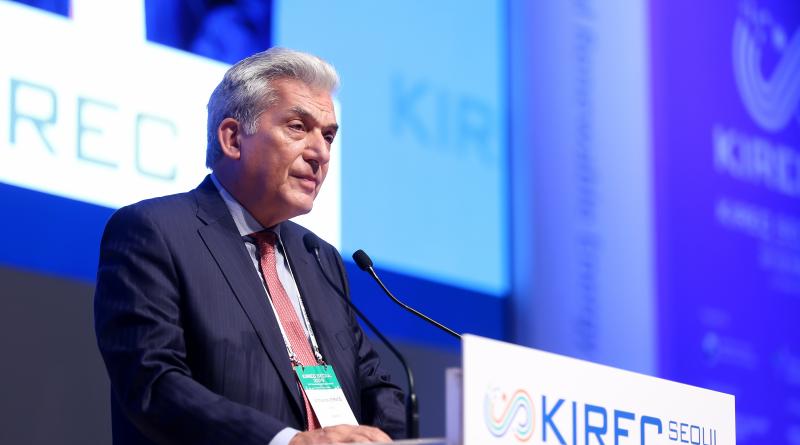
With over 2000 participants, 30 sessions and 22 side events, the eighth edition of the International Renewable Energy Conference (IREC) was held last week in Seoul, the Republic of Korea from the 22nd to the 26th of October.
Called KIREC Seoul 2019 after the hosting country and city, the event was one of a kind; for the first time in the IRECs, a national and a local government where co-host. Cities are taking the leading role in the renewable energy debate and KIREC Seoul 2019 was another example of multi-level integration needed for the energy transformation.
REN21 Chair Professor Arthouros Zervos delivered the opening speech.
Excellencies, Distinguished Delegates, Ladies and Gentlemen.
It is a great pleasure for me to welcome you to KIREC Seoul 2019
On behalf of REN21, I would like to thank the Government of the Republic of Korea –most especially Minister SUNG Yun-mo and the Seoul Metropolitan Government Mayor PARK Wan-soon for co-hosting KIREC Seoul 2019.
I would also like to acknowledge former UN Secretary General Mr. MOON Ban Ki who with his presence today as Chair of Korea’s National Council on Climate and Air Quality, clearly signals the role renewables can play in ensuring clean and healthier air for all.
And we have Kim Do-hyun, youth representative whose collective voice is central to creating the necessary pressure to drive change.
KIREC Seoul 2019 follows in the footsteps of Germany, China, India, the United States, the United Arab Emirates, South Africa and Mexico as hosts of this international conference series.
KIREC Seoul 2019 is the first International Renewable Energy Conference (IREC) to be co-hosted by a national and local government. Cities increasingly are strong drivers in renewable energy deployment, adopting some of the most ambitious targets for renewables globally.
KIREC Seoul 2019 highlights the central role of cities in the energy transition.
When REN21 was founded in 2004, the future of renewable energy looked very different than it does today.
- No one imagined then that nearly two-thirds of newly added power capacity would be renewables-based as it is today.
- No one imagined that tens of millions of homes and businesses would add solar power to their rooftops so rapidly.
- No one imagined that China would go from a minor player to a global leader in under ten years.
It is undisputable that we are seeing an eletricity transition.
But what we need is an energy system transformation.
Transport, heating and cooling represent over 80% of total final energy demand. These sectors must be decarbonised if we are to avoid a climate emergency and to secure healthy, productive lives for our children and grandchildren.
We come together here at KIREC Seoul 2019 to address this challenge.
Collectively we have the know-how and the technology to decardonise our energy sector. What are missing are the ambitious and long-term policies. The uptake of renewables in the power sector demonstrates this.
By end-2018, 26% of all power was provided by renewables. 135 countries had power regulatory policies in place compared to 70 countries with transport policies and only 20 countries with heating and cooling regulatory policies.
We can and must do better on the policy front if we want to stay below 1.5C temperature rise.
Renewables also bring added benefits: They are an entry point for improving the air we breath, they provide an engine for technology development, diversified employment. They can increase energy security by decreasing reliance on imported fuels.
Acceptance of a 100 % renewable energy system is increasing.
It is further fuelled by proof that renewable energy paired with energy efficiency is today the most cost effective option in many cases.
In order to achieve 100% renewable energy it is important to adopt a systems approach, where the generation and use of renewable energy is looked at from a cross-cutting perspective.
It includes developing, supporting infrastructure such as transmission and distribution networks, balancing supply and demand measures, energy-efficiency measures, and sector coupling as well as employing a wide range of enabling technologies.
But its not only about technologies: technology development and innovation are important, but the energy transition means ensuring that everyone has access to clean, affordable energy services needed for a productive healthy life.
This means ensuring social participation and the empowerment of local communities and youth: Youth are the future – we need to listen to them as they will inherit what we leave behind.
At the occasion of KIREC Seoul 2019, REN21 is launching a new report titled Asia and The Pacific Renewable Energy Status Report.
This report looks at the current status of renewable energy uptake in the region.
The region is home to over 50% of the world’s population; collectively consumes 39% of the world‘s energy supply and is responsible for 45% of all greenhouse gas emissions. The potential for renewable energy and energy efficiency in the region is high.
Ladies and Gentlemen, we have come a long way, especially in the power sector.
However a lot still has to happen.
Renewable energy provides an engine for technology development and diversified employment.
Renewables also improve the air we breathe and increase energy security by decreasing reliance on imported fuel.
To accelerate the transition to a healthier, more-secure and climate-safe future, we need to build a smarter, more flexible system that maximises the use of variable sources of renewable energy, integrates energy efficiency, and accommodates centralised, decentralised and community-based generation.
And we, as the older generation, need to show courage to the youth. That change is possible.
It is our sincere hope that KIREC Seoul 2019 –a common platform for government, private sector and civil society leaders— will help serve as a catalyst for renewables in the region and beyond.
And that the conference will send a strong signal to COP25 about the central role of renewables and energy efficiency in decarbonising the energy sector.
I hope that you find KIREC Seoul 2019 informative and stimulating. And, that through conversation and exchange between all the participants, we can find ways to collectively drive the energy transformation with renewables.
Thank you
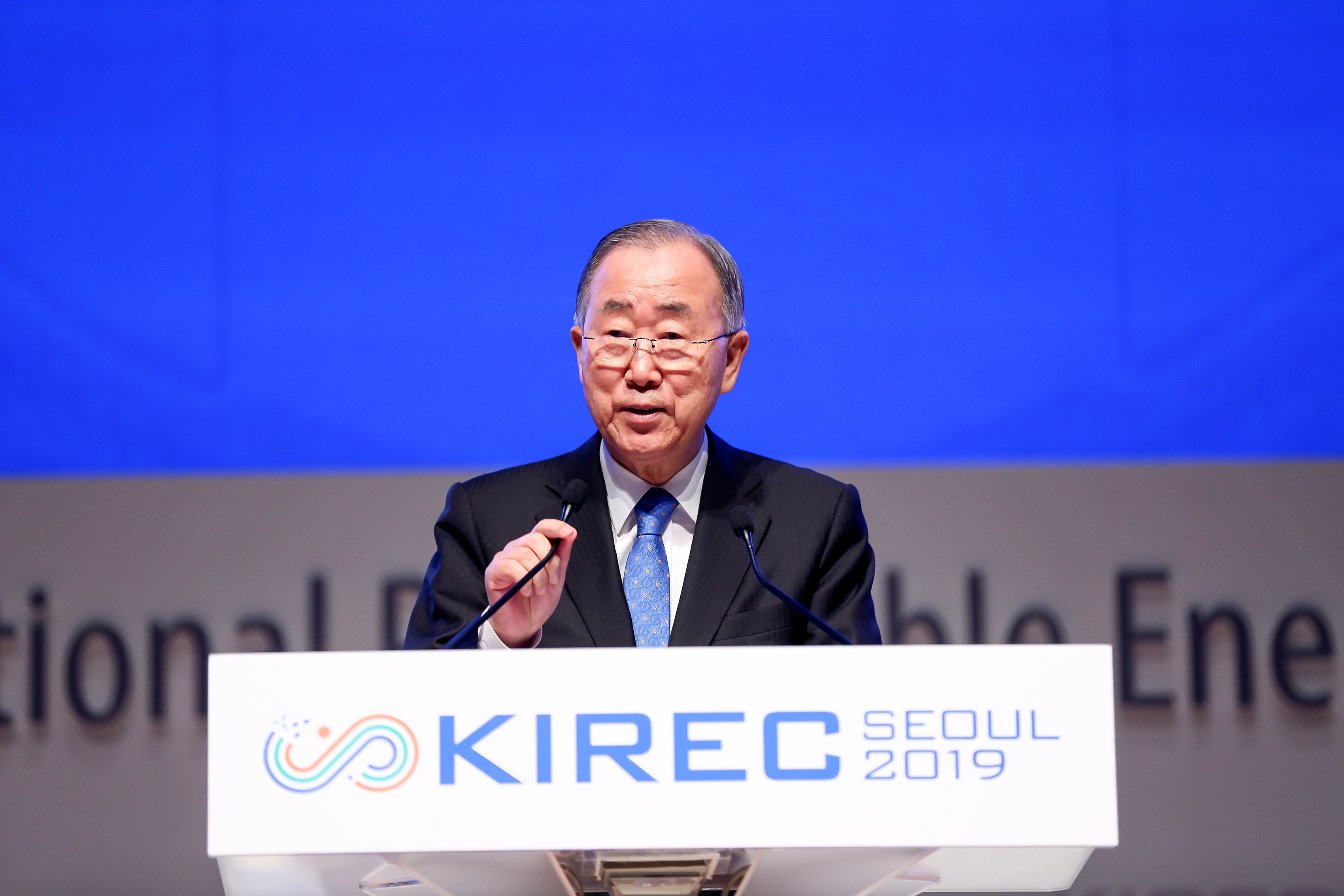
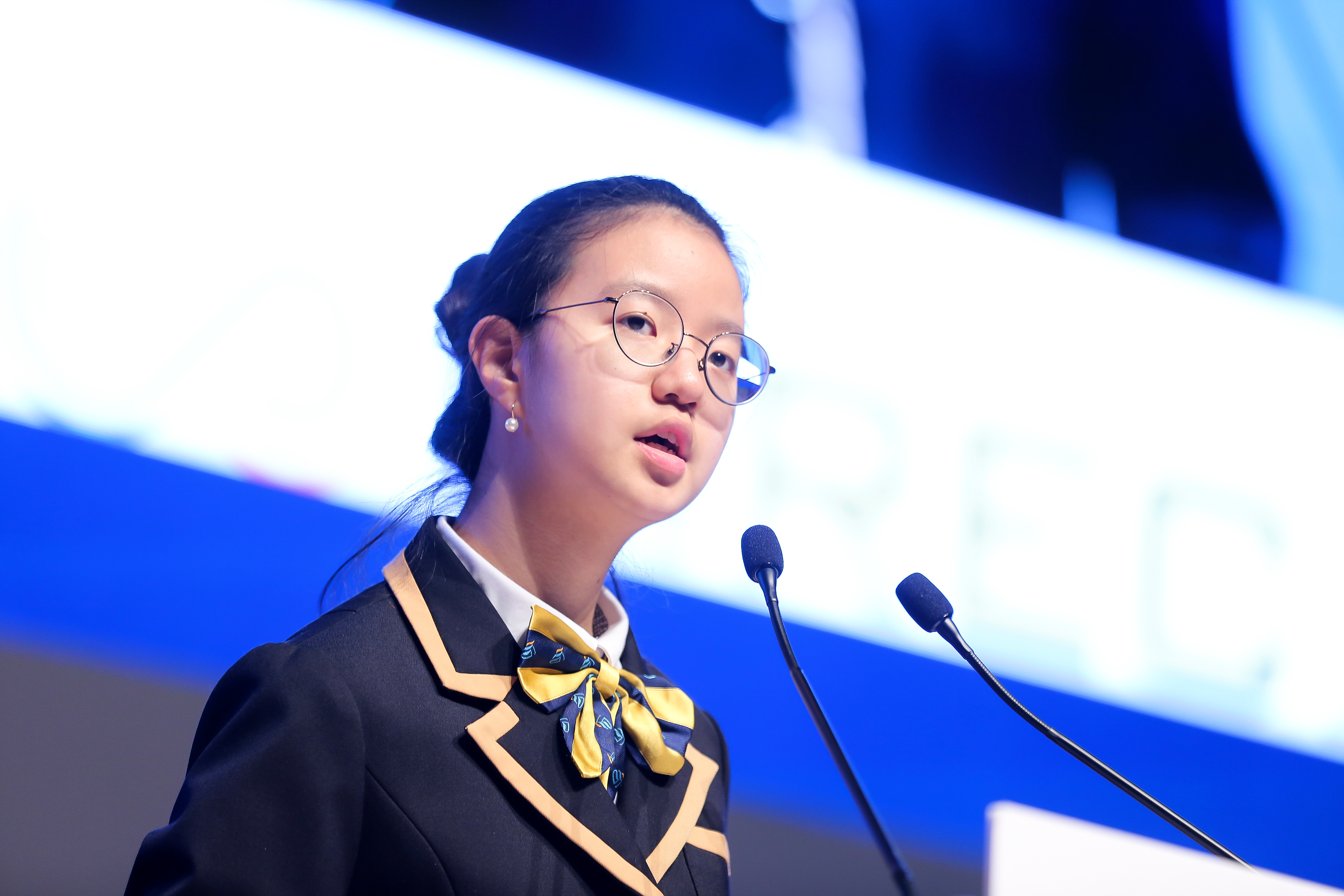
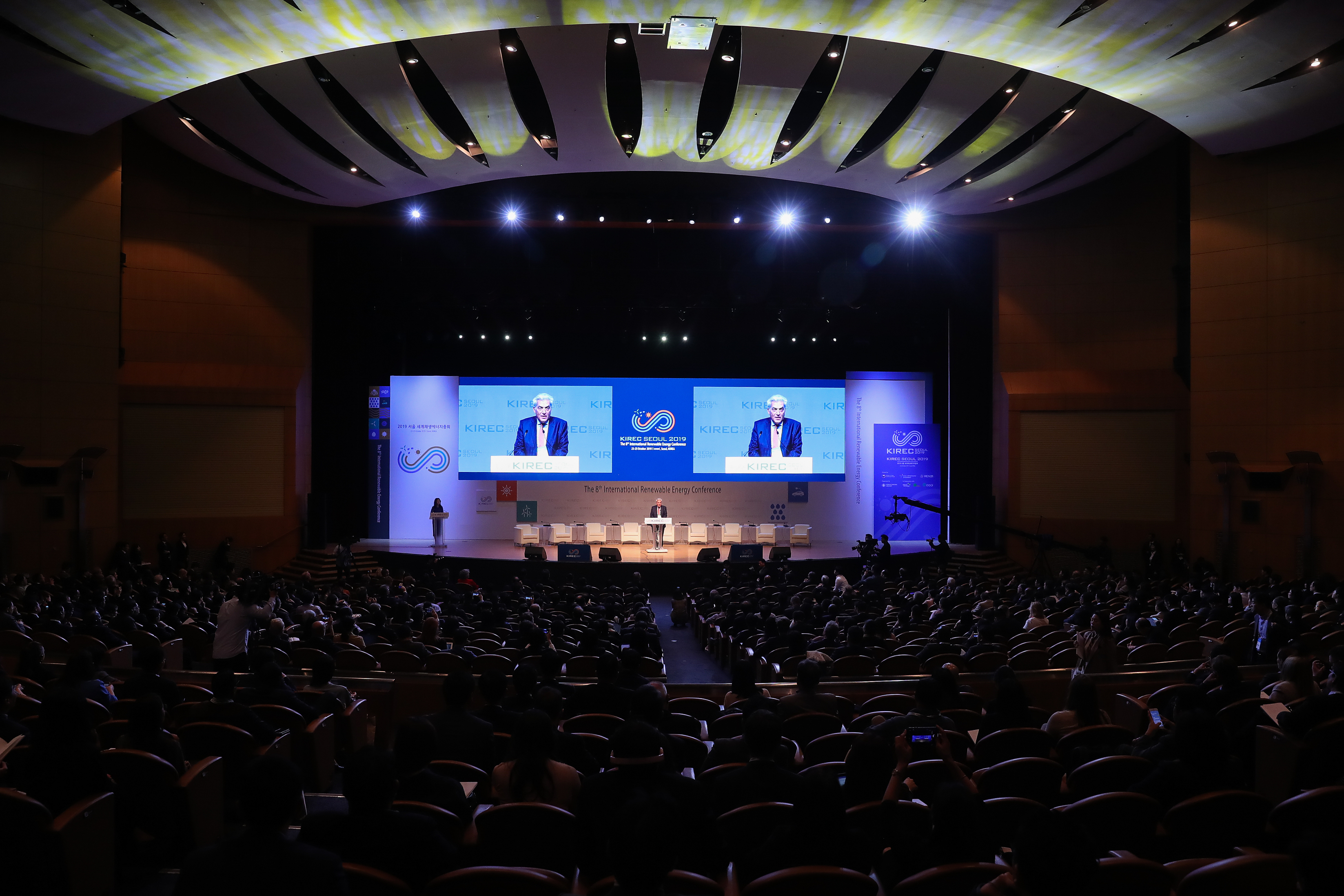
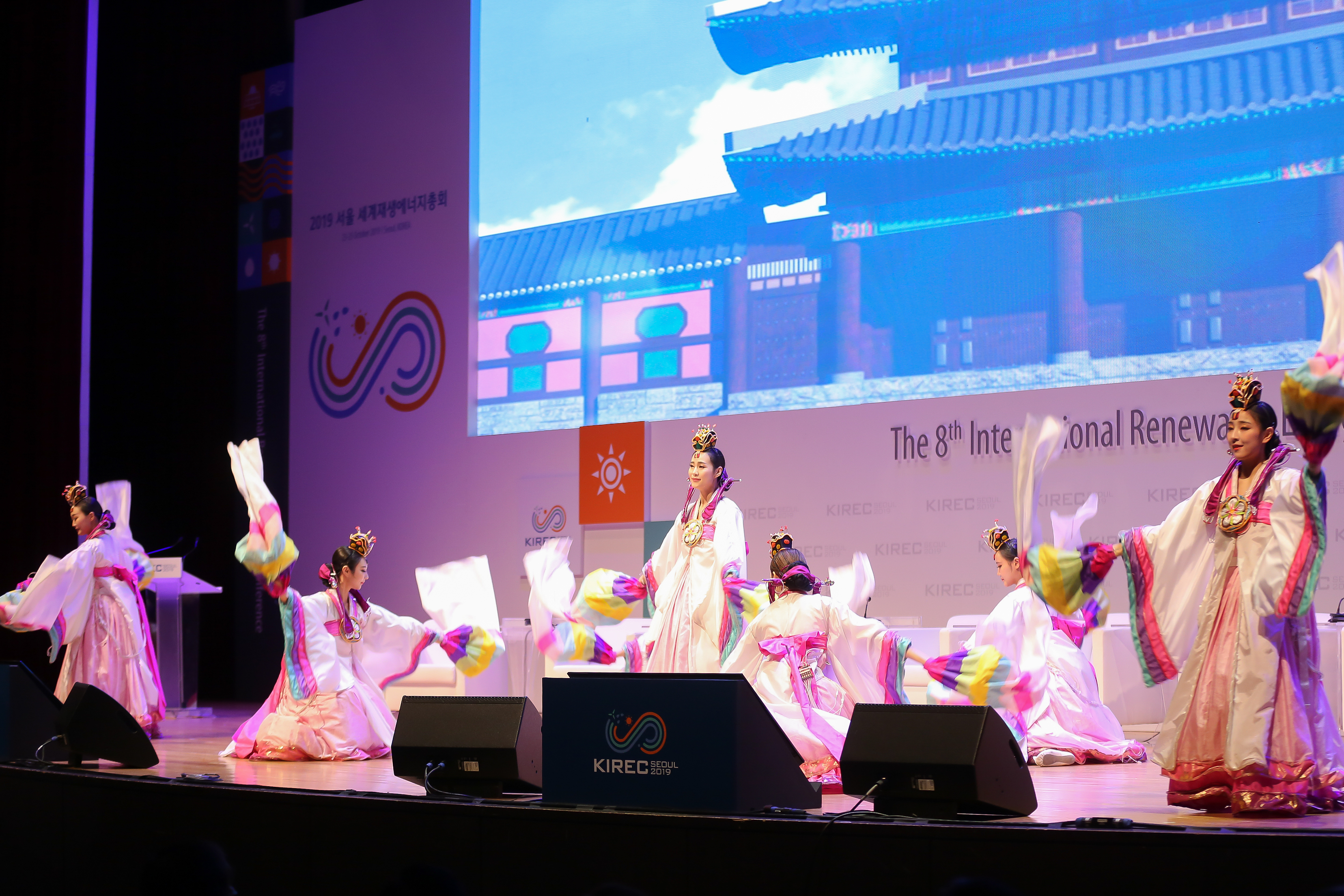
At this international high-level policy event, REN21 invites leaders from across society to meet and discuss policies and experiences. The focus is on building collective know-how to advance renewables at the international, national and sub-national levels.
Inspired by the 2004 renewables conference in Bonn, each IREC involves representatives from business, governments, civil society, science and academia all whom participate in discussions and debates – with the objective of advancing the global energy transition to renewables. The IREC is hosted by a national government and is held biennially.

